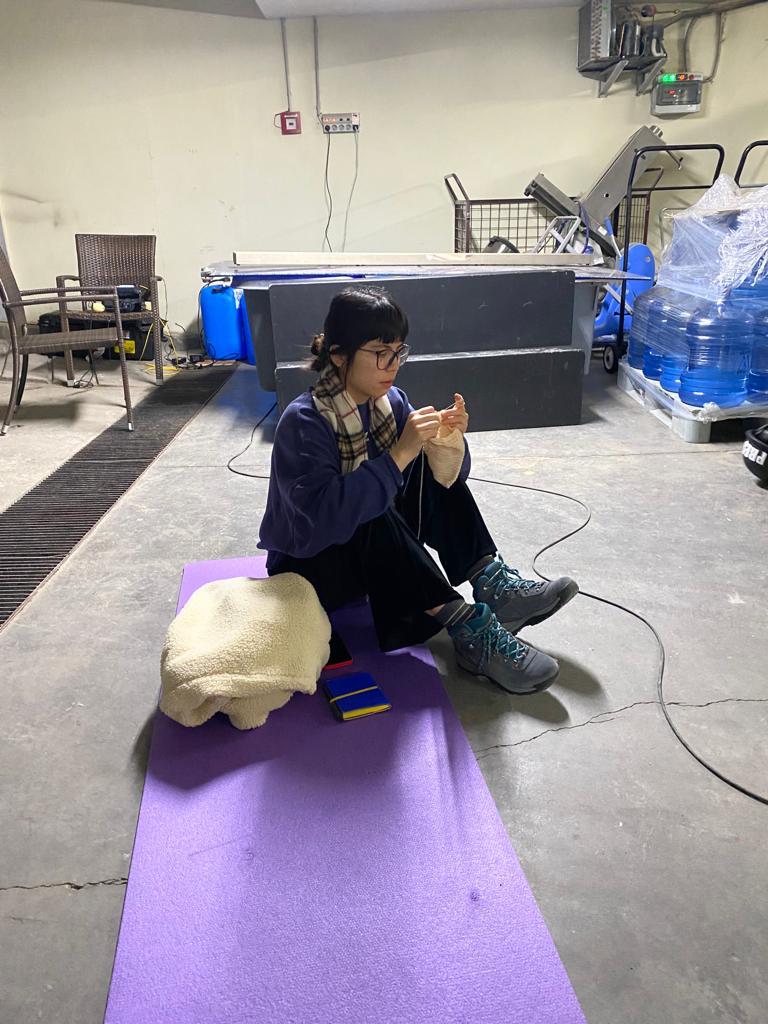Sign up for the daily CJR newsletter.
Sahar Merzaie used to work in social media at the BBC. At twenty-eight, she lived alone in Kabul, had male friends, and even modeled for a photographer. “I wanted to change the culture,” Merzaie, who worked at BBC Media Action, said through a translator. “I wanted to show people that women can do things, that women can go work outside the home.”
Even before the Taliban returned to power this August, there had been threats. “It’s okay that you’re shaking hands with me, that you’re being photographed,” people would tell her. “But just wait for the Taliban.”
As the Taliban closed in on Kabul, a friend who worked for the Wall Street Journal put Merzaie on a list of reporters, translators, and news assistants to be evacuated. On August 15, 2021, the day the Taliban took control of the city, her friend called and told her to rush to the airport. When she arrived, it was chaos. There was no flight for her. Merzaie went back to the airport the next day, and the next. Finally, on August 18, she joined a group of Afghan journalists, activists, women, and children on a Ukrainian military cargo plane. Merzaie had no belongings, only her phone. “I had no idea about Ukraine,” said Merzaie. “I didn’t know anything about the country.”
The passengers sat grounded on the runway for four days, waiting for more Ukrainian citizens to arrive. They hardly ate or drank, because there was no bathroom and they were terrified to leave the plane and miss the flight. It took off on August 21, carrying thirty-one Ukrainians and fifty-two Afghans to Kyiv.
Related: Reporting on America’s longest war
By the end of August, according to Ukrainian officials, the country rescued more than six hundred journalists like Merzaie from Afghanistan. After two weeks in a Hyatt Hotel with the Wall Street Journal team, Merzaie needed to find her own place to stay. She asked around for help, but had no money for rent. A man named Mark let her live in his apartment while he left for London. She borrowed a baggy coat from his closet for warmth.
Merzaie had hoped to fly from Ukraine to Canada with the group of reporters from the Journal who left Afghanistan together. After two months, they left without her. She felt abandoned. A representative for the Journal declined to comment on the record.
Without a visa, Merzaie couldn’t legally stay in Ukraine for more than three months. But it was also difficult to leave without a visa—and without money. “I was living in limbo,” she said. She missed her parents and siblings in Afghanistan.
In Kyiv, people spoke of war but didn’t seem to take it seriously. Merzaie did. “I was constantly thinking about experiencing another war,” she said. Every sound scared her. She had nightmares and lost her appetite. “How am I going to survive in another war zone when I don’t speak the language, when I don’t know how anything works here?” she thought. On February 24, Russia launched its attack. “I fled one war, and I was trapped in another.”
Related: What happened to Afghanistan’s journalists after the government collapsed
Recently, Merzaie awoke to the sound of an air raid siren. A few minutes later, she got a call from another group of foreign correspondents from the Journal. They told her to come to their hotel—it was safer than an apartment. When she arrived, they went down to a bunker. “The sound and everything made me think of explosions in Afghanistan,” Merzaie said.
The next morning, the reporters arranged for three Toyota Corollas to drive them to Poland. Ten people crammed inside with their luggage. But compared with the escape from Kabul, Merzaie said, the three-day drive to Poland was “like a vacation.” There was food and water. They slept in the cars one night and in hostels the others.
On March 1, they arrived in Lublin, Poland. “It was the happiest moment of my life to get to know that I am not in danger anymore,” said Merzaie. She plans to seek asylum in Germany. “I may live a longer life. I might have a future.”
Has America ever needed a media defender more than now? Help us by joining CJR today.







